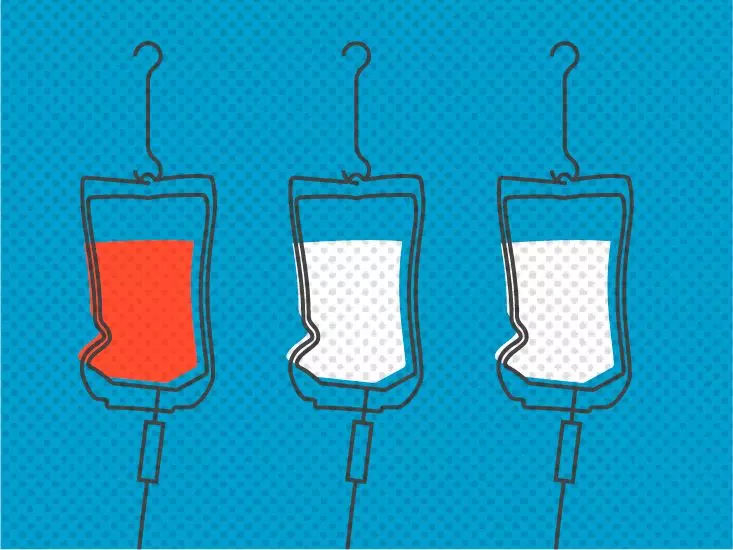Abecma (idecabtagene vicleucel) represents a significant advancement in the treatment of multiple myeloma, especially for adults who have not had success with other therapies. This infusion therapy is not merely a medication; it’s a lifeline for patients grappling with refractory or relapsed multiple myeloma. Such labels may seem clinical, but behind them lie the poignant stories of individuals battling an insidious disease that many have come to know as a complex adversary. By focusing on patients who require advanced treatment options, Abecma aims to provide hope where other medication regimens have failed.
Most importantly, it’s vital for patients to understand how this novel therapy works and the precautions they must adhere to during their treatment journey. Like any innovative healthcare solution, the discussion around Abecma should not simply center on its benefits but must also encompass the potential interactions that could impact patient outcomes.
The Silent Interactions: Medications, Supplements, and Alcohol
Abecma has not been widely reported to interact negatively with other medications; however, caution should remain at the forefront of a patient’s mind. Medical interactions can be akin to hidden pitfalls that may not reveal their danger until it’s too late. Therefore, clear communication with healthcare providers is essential. Patients must disclose their entire list of current medications, including over-the-counter drugs, to foster a collaborative and informed treatment plan.
Surprisingly, while specific drug interactions are lacking, there’s an area that deserves attention: the relationship between Abecma and lifestyle choices—specifically, alcohol consumption. Although current evidence does not indicate major interactions, alcohol may exacerbate some side effects associated with Abecma, such as nausea and headaches. This highlights a crucial aspect of patient responsibility: self-awareness and consultation. Discussing alcohol use with a healthcare professional isn’t merely a formality; it empowers the individual by equipping them with knowledge to navigate their treatment effectively.
The Unseen Interplay: Vaccines, Lab Tests, and Herbal Supplements
In a world where preventive health measures like vaccinations are increasingly emphasized, Abecma presents unique challenges. The drug’s mechanism notably weakens the immune system, thus placing patients at risk of inadequate responses to live vaccines. Patients receiving Abecma must be diligent in discussing vaccination plans with their healthcare providers to avoid potential health complications.
Moreover, the effects of Abecma on routine lab tests—such as those used to detect HIV—are critical considerations that deserve serious attention. The possibility of false-positive results can lead to unnecessary anxiety and further interventions that may not be needed. Staying abreast of these interactions arm patients with the knowledge to advocate for themselves.
Herbal supplements also warrant scrutiny, despite the lack of concrete evidence tying them directly to Abecma interactions. The vague yet persistent nature of herbal remedies often leads patients to self-prescribe without sufficient guidance. Therefore, proactive discussions about herbal products should be integrated into routine patient consultations to mitigate any unforeseen side effects.
Embracing New Frontiers: The Role of Cannabis
The conversation surrounding cannabis—designated as both a health tonic and a controversial substance—has entered mainstream discourse, yet its potential interactions with medications like Abecma remain ambiguous. The trend of utilizing cannabis products for therapeutic purposes has outpaced the research depicting their safety and efficacy. For patients considering cannabis alongside Abecma, caution is advised. Consultation with a healthcare provider could unveil valuable insights, fostering an environment where informed choices reign.
Additionally, cannabis can influence motivation and adherence to treatment, a factor that cannot be overlooked in the realm of chronic illness management. Patients must weigh the potential benefits against the risks with careful scrutiny.
Practical Tips for Patients: Navigating the Treatment Landscape
The landscape of managing advanced multiple myeloma can feel daunting, yet by taking actionable steps, patients can gain a sense of empowerment over their treatment journey. The proactive approach entails developing an open channel of communication with doctors and pharmacists—an indispensable resource in identifying potential interactions or complications. Detailed documentation of all medications, lifestyle habits, and even dietary preferences creates a comprehensive narrative that healthcare providers can utilize for tailored treatment plans.
Moreover, patients should meticulously review all materials accompanying their treatment to ensure a thorough understanding. The more informed a patient is about their treatment, the better equipped they are to advocate for their health, voice concerns, and mitigate risks.
Through this collective endeavor of informed collaboration, we foster stronger health outcomes and instill hope for a brighter future. Rather than viewing Abecma simply as a drug, envision it as part of a more extensive treatment paradigm, wherein knowledge, communication, and patient empowerment converge for success.

